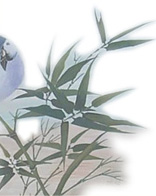|
 Listen to Shirley Singing the Poem in English & in Chinese June 2, 2012 Listen to Shirley Singing the Poem in English & in Chinese June 2, 2012
 Listen to Shirley Singing the Poem in Chinese & in English Jan 30, 2012 Listen to Shirley Singing the Poem in Chinese & in English Jan 30, 2012
 Follow the Music to Sing the Poems by Yourself Follow the Music to Sing the Poems by Yourself
 Listen to Shirley Explaining the Poem & Follow Me to Read It & the New Chinese Characters Listen to Shirley Explaining the Poem & Follow Me to Read It & the New Chinese Characters
 Follow Shirley to Read the Poem & the New Chinese Characters Follow Shirley to Read the Poem & the New Chinese Characters
 Learn the Meaning of the Poem Learn the Meaning of the Poem
 See Shirley Created Paintings for the Poem June 2, 2012 See Shirley Created Paintings for the Poem June 2, 2012
 See Shirley Created Paintings for the Poem Jan 30, 2012 See Shirley Created Paintings for the Poem Jan 30, 2012
 See Shirley Created Paintings for the Poem July 03, 2010 See Shirley Created Paintings for the Poem July 03, 2010
Original Poem, Lyrics of the Song in Chinese and Pronunciations
You can click on any Chinese Character to open the New Character Board and see its Chinese pinyin, meaning, pronunciation and follow my reading, you can also click on the links to enter the Painting Column, to see more paintings and art notes that I wrote for the poem.
هˆ«è‘£ه¤§ —biأ© dا’ng dأ
ه”گ—tأ،nة، (618-907)
é«ک适—gؤپo shأ¬ (700-765)
هچƒé‡Œé»„ن؛‘白و—¥و››â€”qiؤپn lاگ huأ،nة، yأ؛n bأ،i rأ¬ xإ«n,
هŒ—é£ژهگ¹é›پé›ھç؛·ç؛·â€”bؤ›i fؤ“nة، chuؤ« yأ n xuؤ› fؤ“n fؤ“nم€‚
èژ«و„په‰چè·¯و— çں¥ه·±â€”mأ² chأ³u qiأ،n lأ¹ wأ؛ zhؤ« jاگ,
ه¤©ن¸‹è°پن؛؛ن¸چ识هگ›â€”tiؤپn xiأ shuأ rأ©n bأ¹ shأ jإ«nم€‚
èژ«و„په‰چè·¯و— çں¥ه·±â€”mأ² chأ³u qiأ،n lأ¹ wأ؛ zhؤ« jاگ,
ه¤©ن¸‹è°پن؛؛ن¸چ识هگ›â€”tiؤپn xiأ shuأ rأ©n bأ¹ shأ jإ«nم€‚
The Main Meaning of the Poem and the Lyrics of the Song in English
A Farewell Song for Dong Da
by Gao Shi (704-765)
Tang Dynasty(618-907)
Yellow clouds stretch for a thousand miles,covering the sunlight.
The north wind blows the wild geese through the flurrying snow.
Don't worry there is no dear friend on the road(ahead).
In the world there is no one who doesn't know you.
Don't worry there is no dear friend on the road(ahead).
In the world there is no one who doesn't know you.
In the world there is no one who doesn't know you.
There is no one who doesn't know you.
About the Poet
Gao Shi é«ک适 ة،ؤپo shأ¬ (700-765) was from Hebei Province and was an important representative of frontier fortress poetry in the Tang Dynasty (618-907).
The most flourishing times of Tang Poetry was in the Glorious Age of Tang Dynasty. Besides Li Bai and Du Fu, there were many other great poets during that period. Some of these poets and their works can be summarized into two big genres. One is the landscape, field and garden poetry genre, Wang Wei and Meng Haoran being their representative poets; the other is the frontier fortress poetry genre, Gao Shi and Chen Shen being their representative poets.
In the Glorious Age of Tang Dynasty, the frontier was very long; there were many garrison troops, and there were many opportunities for the poets to work in the frontier regions. Therefore, many of them wished to join the army to pursue their careers. With this background, they created many poems that described the landscape of the border areas,recorded their army lives, and their dreams of working for the country; they expressed the feelings of the soldiers in the frontier fortress. In this genre, apart from Gao Shi and Chen Shen, there were also Wang Changling, Li Qi, Wang Zhihuan and Wang Han and many other poets. As the representative poets of the genre, Gao Shi and Chen Shen are also known collectively as Gao and Chen.
Gao Shi was born into quite a poor family in Bohai Tiao Xian (Today's Jing County, or the other version: Cang County, Hebei Province), and was a beggar in his teenage years. When he was about 20 years old, he went to the capital—Chang′an (Today's Xi′an) to find his way, but returned frustrated. In his middle age, he wandered or drifted through Liang, Song, Yan, Zhao (today's Henan and Hebei Provinces), until he was nearly 50 years old. By the recommendation of Zhang Jiugao, he was appointed to be a Fengqiu Xianwei (An official just below the head of a county). In this position, he felt “ و‹œè؟ژé•؟ه®که؟ƒو¬²ç¢ژ, éوŒé»ژه؛¶ن»¤ن؛؛و‚² â€bأ i yأng zhاژng guؤپn xؤ«n yأ¹ suأ¬ biؤپn tأ lأ shأ¹ lأ¬ng rأ©n bؤ“i —My heart was broken when I had to pay homage to some bad senior officers; my heart was sad when I saw them lash the ordinary people).Therefore, he left this position and became a military staff officer of Ge Shuhan who was Hexi Jie Du Shi (a military governor of Hexi). During the Rebellion of An and Shi (755-763), Ge Shuhan was defeated and lost Tongguan. The emperor Xuan Zong had to escape from the capital. Gao Shi caught up with Xuan Zong and told him about the battle in Tongguan. He was then appointed to be a Shi Yushi (Imperial Clerk).After that his official rank rose higher and higher, to the position of Jie Du Shi (Military Governorship), in charge of both civil and military work in several provinces several times until he became the Marquis of Bohai Tiao Xian.
The representative works of Gao Shi were his frontier—style poems and the poems that reflected the people's lives. With a positive attitude to life, heroic spirit, an exoteric but refreshing language and a euphemistic and flowing melody, he expressed the magnificent scenery of the frontier and the real lives of the soldiers.
Enjoy the Poem
Bie Dong Da—A Farewell Song for Dong Da is a little poem, expressing Gao Shi's feeling on sending off his friend Dong Da.
Dong Da was the name of a famous musician Dong Lanting in Tang Dynasty. Dong was his family name, Da means old,meaning he was the eldest one among his brothers, so he was called Dong Da.
Dong Da was a famous master of the musical instrument—Qi Xian Qin (Heptachord). In the Glorious Age of Tang Dynasty, there were many cultural exchanges among the Han People and the other nationalities.The music of non?Han nationalities was quite popular, but few musicians understood how to play Qi Xian Qin—heptachord. However, Dong Da was one of the master musicians who could play it expertly.
This poem was written in Suiyang (in today's Henan Province) in 747. At that time, the poet Gao Shi and his friend Dong Da met each other after being apart for a long time. After a short reunion, they would have to part again.
The first two lines:هچƒé‡Œé»„ن؛‘白و—¥و››ï¼ŒهŒ—é£ژهگ¹é›پé›ھç؛·ç؛· qiؤپn lاگ huأ،nة، yأ؛n bأ،i rأ¬ xإ«n, bؤ›i fؤ“nة، chuؤ« yأ n ï½کuؤ› fؤ“n fؤ“n—Yellow clouds stretch for a thousand miles, covering the sunlight; the north wind blows the wild geese through the flurrying snow.
With the simplest words, the two lines describe the time and environment in which they parted. On the surface, it is writing about the landscape, but reading between the lines, we can hear the sound of the wind, see the birds in the heavy snow and feel the spirit of the heroes on the peaks of the mountains.
It was just in this sort of desolate, cold and vast environment that the poet Gao Shi was about to send his friend, who had a unique musical skill but had not been recognized yet.
Instead of doing what most of people do when they have to say goodbye with a sad feeling, in this poem Gao Shi spoke his parting words of advice with quite a positive emotion and encouraging style.
The last two lines: èژ«و„په‰چè·¯و— çں¥ه·±ï¼Œه¤©ن¸‹è°پن؛؛ن¸چ识هگ› mأ² chأ³u qiأ،n lأ¹ wأ؛ zhؤ« jاگ, tiؤپn xiأ shuأ rأ©n bأ¹ shأ jإ«n —Don't worry there is no dear friend on the road ahead; In the world there is no one who doesn't know.
With a very positive attitude to life,and very resonant and strong sounds, he encourages his friend to make the effort to pursue his dream with much more confidence and strength.These two lines bring a warm feeling to his friend in the cold winter weather.
Since Dong Da—Dong Lanting was a highly accomplished player of string instruments,he would certainly meet someone who could understand him on the road ahead.
Because they were close friends, they could speak in a simple, unrestrained and frank manner, and although they were both in a frustrating situation at that time, they could take comfort in their hope for the future.
The last two lines are very optimistic and bring to the whole of the little poem a heroic feeling; there is no sorrowful feeling at all.
Inspiration:
This is one of my favorite farewell poems. I love it because of the positive life attitude inside, and the deep caring for a close friend.When I asked myself why the short 4 lines could touch people so much, two lines from a lyric by Qin Guan in Song Dynasty jumped into my mind: “ن¸¤وƒ…è‹¥وک¯ن¹…é•؟و—¶ï¼Œهڈˆه²‚هœ¨وœوœوڑ®وڑ®liاژng qأng ruأ² shأ¬ jiا” chأ،ng shأ,yأ²u qاگ zأ i zhؤپo zhؤپo mأ¹ mأ¹ —If love between both sides can last forever, why do they need to stay together night and day? †It talks about love,and I think it can express a similar situation between friends. When a precious friendship and feeling can be kept forever in two hearts, why must they stay together always?
Being moved so much, I translated this poem and wrote a piece of music for it in 2005, created a painting for them in 2010, and then I painted a new painting as my assignment at Chinese National Academy in 2012.
I really hope that my effort will be of help for you to learn Chinese language and culture.
If you have any questions, comments or suggestions,
and you are welcome.
Shirley Yiping Zhang
Sep 20, 2012, Beijing
----------------------------
Below is the original articles, before I started to work with the publishing house, I would like to stay here as a memory:
 Now it is the season to say Good Bye or Good Luck, because, on your side, you just had your Christmas and New Year's Day, and on my side, we are still in the Chinese Spring Festival Vacation. Now it is the season to say Good Bye or Good Luck, because, on your side, you just had your Christmas and New Year's Day, and on my side, we are still in the Chinese Spring Festival Vacation.
Usually, no matter who we are, to be the one to go out of the home to go on a future road, or to be the one to see someone else off, there are certainly some sad feelings in our hearts, even though we are speaking some blessing words each other.
Anyway, in a little but very famous Chinese classical poem - Bie Dongda ? A Farewell Song for Dong Da that I would like to introduce to you today, instead of expressing the general sad feelings, it expresses a very positive, optimistic feelings. Therefore it has been enjoyed by Chinese people since it was created by Tang Dynasty ( 618 -907) poet Gao Shi (704 - 765).
As one of the 10 Jie Du Shi in Tang Dynasty, firstly, Gao Shi was a governor who was in charge of both civil and military work in several provinces, he had a very positive life attitude to work for the country in the frontier area, meanwhile, he wrote a lot of long poems to appreciate the landscape of the frontier and the hard life in the war fields with a very optimistical attitude, expressed most of the people’s positive emotions in the Glorious Age of Tang Dynasty.
Therefore, he was one of the most important and representative poets of the heroism poetry genre of Tang Dynasty in Chinese literature or poetry history.
In the little poem with just four lines that was written for his good friend Dong Da -- Dong Lanting who was a famous musician before Dong would leave for his travel in a heavy snow.
Instead of writing it as a sad poem as many poets had done, Gao Shi wrote it with confidence and the words of encouragement. :-)
I love the positive life attitude and the beautiful picture that the language has painted out in the poem, therefore, I created a piece of music to match it Dec 4, 2005, and then I created a painting for it July 4, 2010.
This weekend, as soon as I came back from my travel, I painted a new painting to match it. And by the good help from my music Prof. Meng Weiye, My British English Tutor Mike, J, American English Tutor Mr. William G. and Chinese English Tutor Xiaogao Z, I have re-written the music, re-translated the poem, re-sung it and re-made the record for you.
I do hope that our effort will be some help with you to learn Chinese language and culture.
 Main Meaning of the Poem : Main Meaning of the Poem :
Yellow clouds stretch for a thousand miles, covering the sunlight,
The north wind blows the wild geese through the flurrying snow.
Don't worry there is no a dear friend on the future road,
In the world there is no one who does not know you.
Translation by Beijing Star-light Translation Center:
A Farewell Poem to Dong Da by Gao Shi
The sun in dimly white,
the 1000-Li clouds yellow,
The cold wind blows the wild geese in drifting snow.
Don’t worry about any bosom friend ahead of road;
All over the native land, everyone knows you.
Chinese Characters & Pronunciations:
You can clink any Chinese Character to open the New Character Board and to see its Chinese pinyin, meaning, pronunciation and follow me to read it, also, you can hit the links over to enter the Painting Column,or you can directly enter the art notes on the painting that I created for this poem to see my painting and art notes for the poem
هˆ«è‘£ه¤§
é«ک适 (704-765)
هچƒé‡Œé»„ن؛‘白و—¥و›› - Qiؤپnlاگ huأ،ngyأ؛n bأ،irأ¬ xإ«n,,
هŒ—é£ژهگ¹é›پé›ھç؛·ç؛· - bؤ›ifؤ“ng chuؤ« yأ n xا”e fؤ“nfؤ“nم€‚م€‚
èژ«و„په‰چè·¯و— çں¥ه·± - Mأ²chأ³u qiأ،nlأ¹ wأ؛ zhؤ«jاگ,
ه¤©ن¸‹è°پن؛؛ن¸چ识هگ› - tiؤپnxiأ shuأrأ©n bأ¹ shأ jإ«nم€‚
 If you have any questions, comments and suggestions, please write to shirley@ebridge.cn . You are welcome to publish your opinions in Message Board as well. If you have any questions, comments and suggestions, please write to shirley@ebridge.cn . You are welcome to publish your opinions in Message Board as well.
Shirley Yiping Zhang
Written, Sung, Translated and Recorded on Jan 29, 2012/ July 4, 2010/ Dec 4, 2005
|

